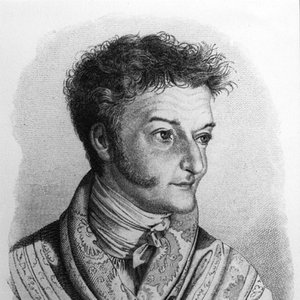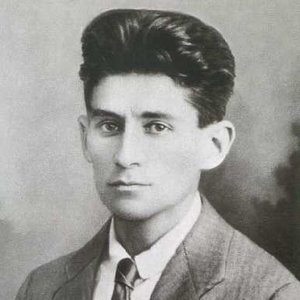Biography
-
Born
19 January 1868
-
Born In
Wien, Austria
-
Died
4 December 1932 (aged 64)
Gustav Meyrink (January 19, 1868 – December 4, 1932) was the pseudonym of Gustav Meyer, an Austrian author, novelist, dramatist, translator, and banker, most famous for his novel The Golem. He has been described as the "most respected German language writer in the field of supernatural fiction".
Gustav Meyrink was born with the name Gustav Meyer in Vienna, Austria-Hungary (now Austria) on January 19, 1868. He was the illegitimate son of Baron Karl von Varnbüler und zu Hemmingen and actress Maria Wilhelmina Adelheyd Meier.
Until thirteen years of age Meyrink lived mainly in Munich, where he completed elementary school. He then stayed in Hamburg for a brief time, until his mother relocated to Prague in 1883.
In Prague an event occurred which played a providential role in Meyrink's life. Meyrink described it in the autobiographical short story "The Pilot". That day, August 14, 1892, on Assumption Eve, Meyrink, 24 years old, was allegedly standing at his table with a gun at his head, determined to shoot himself. At that moment he heard a strange scratching sound and someone's hand put a tiny booklet under his door. The booklet was called Afterlife. Meyrink was surprised by this dramatic coincidence and started to study the literature of the occult. He studied theosophy, Kabbala, Christian Sophiology and Eastern mysticism. Until his death Meyrink practiced yoga and other occult exercises. Results of these studies and practices are found in Meyrink's works, which almost always deal with various occult traditions. Gershom Sholem, an expert in Jewish mysticism, has stated that Meyrink's works are based on superficial sources and do not have any strong association with any authentic tradition.
In 1889, together with the nephew of poet Christian Morgenstern, Meyrink established his own banking company, named "Meier & Morgenstern".
At that time Meyrink also was a member of the famous Hermetic Order of the Golden Dawn in London. This is evidenced by the letter from William Wynn Westcott (1893), which has remained in Meyrink's private archives. He was also member of the Theosophical Society, but only temporarily.
In 1902 Meyrink was charged with fraud. He was charged with using spiritualism in order to benefit from banking operations. Though after two months he was released from jail, his banking career was ended. His jailhouse experiences are depicted in his most famous novel, The Golem (1913–14).
During the 1900s Meyrink started publishing satiric short stories in the magazine Simplicissimus, signing it with his mother's surname. During spring 1903 Meyrink's first book, The Hot Soldier and Other Stories was released. Approximately at the same time he relocated to Vienna. Almost immediately after his arrival another compilation of his short stories, The Orchid. Strange stories, was released.
On May 8, 1905 Meyrink married Philomene Bernt, whom he had known since 1896. On July 16, 1906 his daughter Sybil Felizata was born. On January 17, 1908, the day before Meyrink's fortieth birthday, the second son, Harro Fortunat, was born. Subsequently the main character of the second Meyrink's novel The Green Face was given the same name. In 1908 the third compilation of short stories, Waxworks, was published.
Being in need of money, Meyrink started working as a translator and he became a prolific one; during five years he managed to translate into German fifteen volumes of Charles Dickens, as well as work by Rudyard Kipling and Lafcadio Hearn. He continued translating until his death, including various occult works and even the Egyptian Book of the Dead. Meyrink also edited a series of books on the occult.
In 1911 Meyrink with his family relocated to the little Bavarian town Starnberg, and in 1913 the book Des deutschen Spießers Wunderhorn (The German Philistine's Horn) was published in Munich. It was a compilation of short stories from the previous three books and several new ones. Many of these stories had satirical styles, ridiculing institutions such as the army and the church; Austrian writer Karl Kraus would later describe Meyrink's work as combining "Buddhism with a dislike for the infantry".
In 1915 the first and most famous of Meyrink's novels, The Golem, was published, though its drafts may be traced back to 1908. The novel is based on the Jewish legend about a Rabbi who made a living being known as a golem (גולם) out of clay and animated it with a Kabbalistic spell, although these legends have little to do with the story's plotline. The main character is Athanasius Pernath, a contemporary lapidary from Prague. It is left to the reader to decide whether Pernath is simply writing down his hallucinations or gradually becoming a real golem. Frenschkowski describes the Golem as both "a deep-footed initiatory tale and an urban fantasy". The novel was a great commercial success and many copies were published. In 1916 one more compilation of short stories, Bats, and soon a second novel, The Green Face, was published. The next year his third novel, Walpurgis Night, was written. The success of these works caused Meyrink to be ranked as one of the three main German-language supernatural fiction authors (along with Hanns Heinz Ewers and Karl Hans Strobl ).
Meyrink was opposed to World War One, which caused him to be denounced by German nationalists; the German "Völkisch" journalist Albert Zimmermann described Meyrink as "one of the cleverest and most dangerous opponents of the German nationalist ideal. He will influence– and corrupt– thousands upon thousands, just as Heine did". In 1916 Des deutschen Spießers Wunderhorn was banned in Austria.
By 1920 Meyrink's financial affairs improved so that he bought a villa in Starnberg. The villa became known as "The House at the Last Lantern" after the name of the house from The Golem. There he and his family lived for the next eight years and two more works – The White Dominican and Meyrink's longest novel The Angel of the West Window – were written.
In 1927 Meyrink formally converted to Mahayana Buddhism.
The name "Fortunat" did not bring much luck to Meyrink's son: during the winter of 1932, while skiing, he injured his backbone terribly. That meant that for the rest of his life he would be confined to his armchair. On July 12, at the age of 24 he committed suicide – at the same age his father was going to do it. Meyrink survived his son by half a year. He died on December 4, 1932 in Starnberg, Bavaria, Germany. He is buried in Starnberg Cemetery.
Frenschkowski notes "like those of most other German and Austrian fantastic writers, his books were prohibited during the Nazi era". Later, Meyrink's work enjoyed a revival; Meyrink was discussed in a special edition of the French journal L'Herne (1976), and his work was translated into French, Russian and English.
Artist descriptions on Last.fm are editable by everyone. Feel free to contribute!
All user-contributed text on this page is available under the Creative Commons Attribution-ShareAlike License; additional terms may apply.











